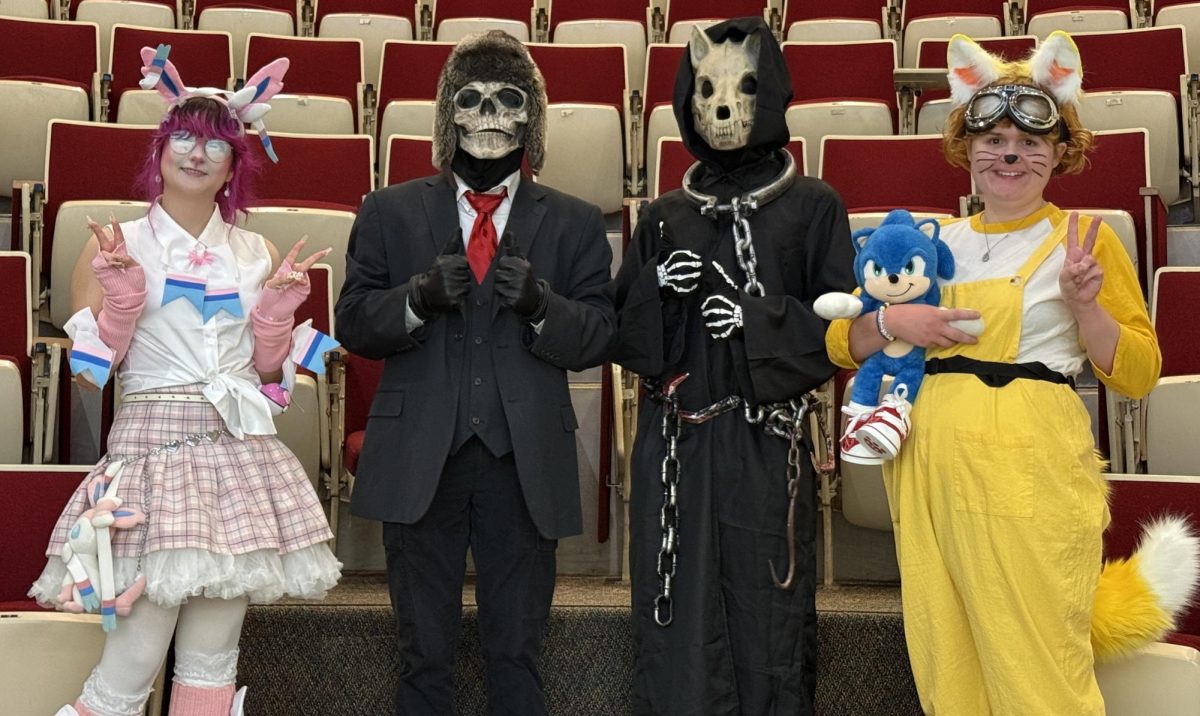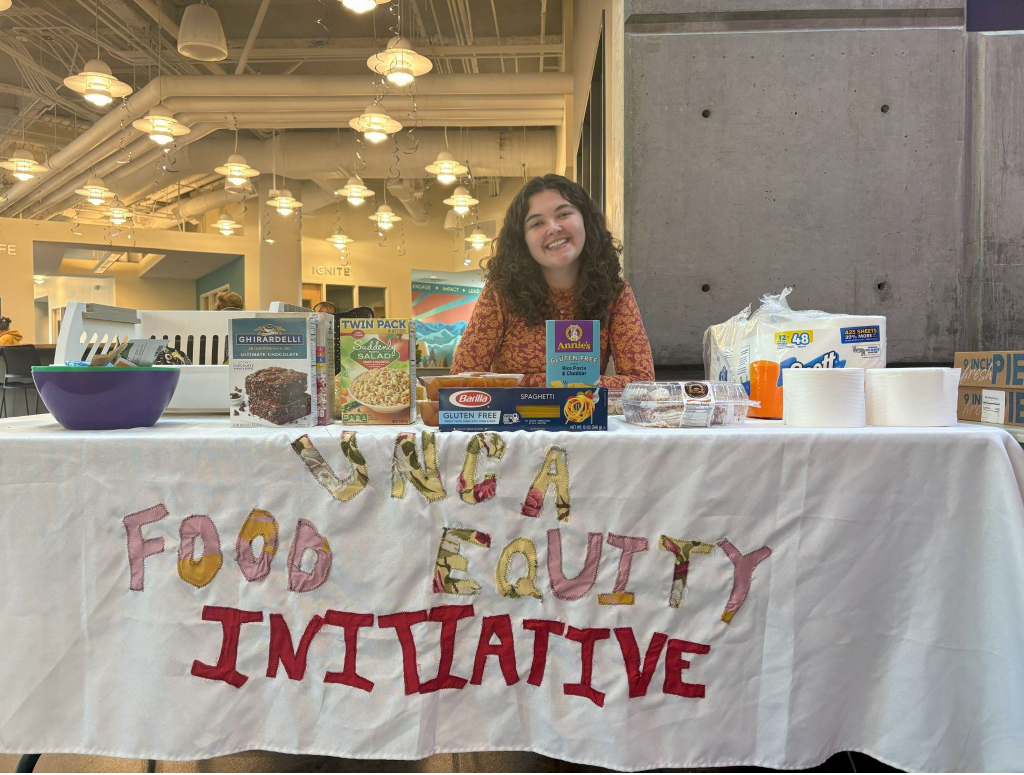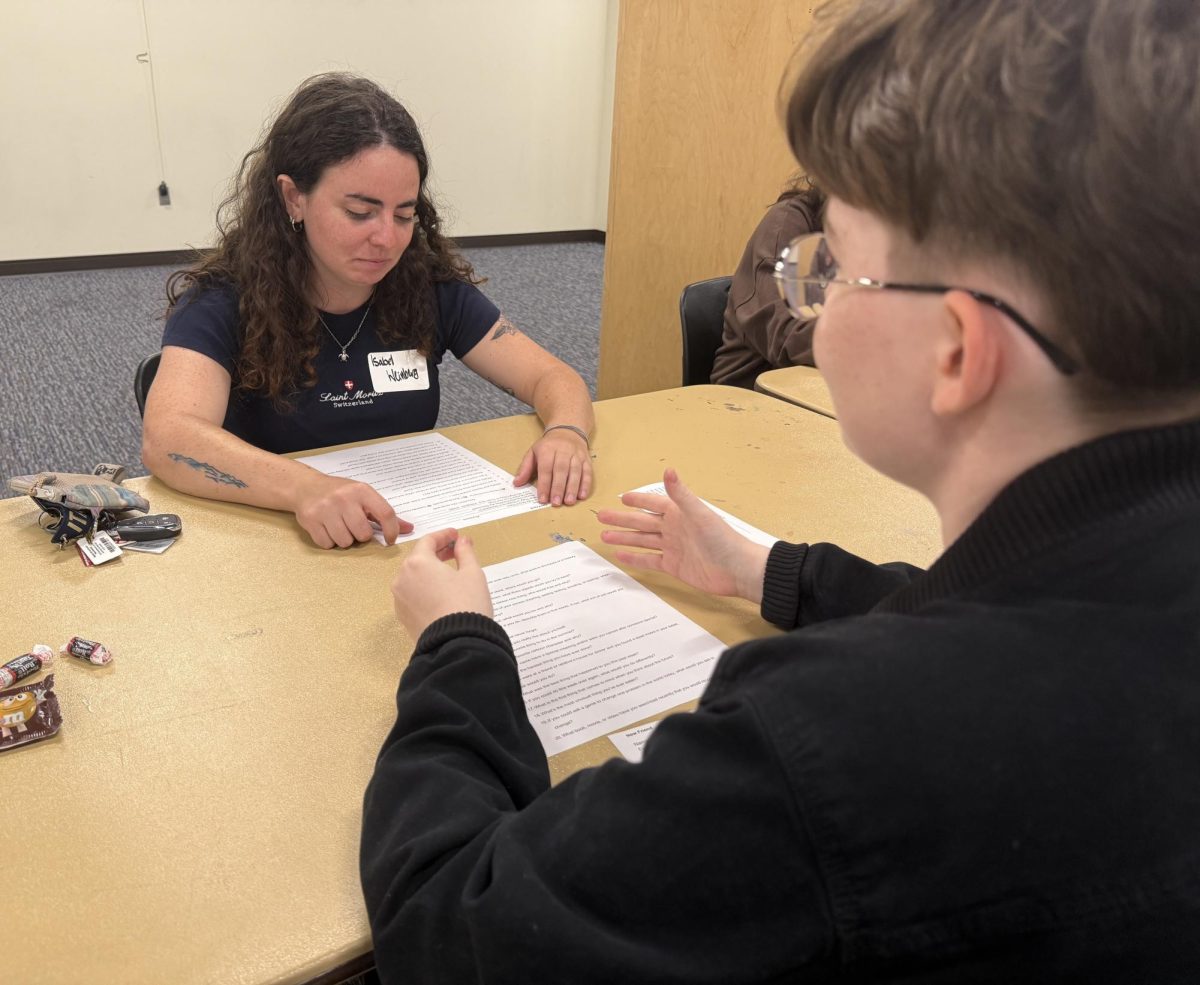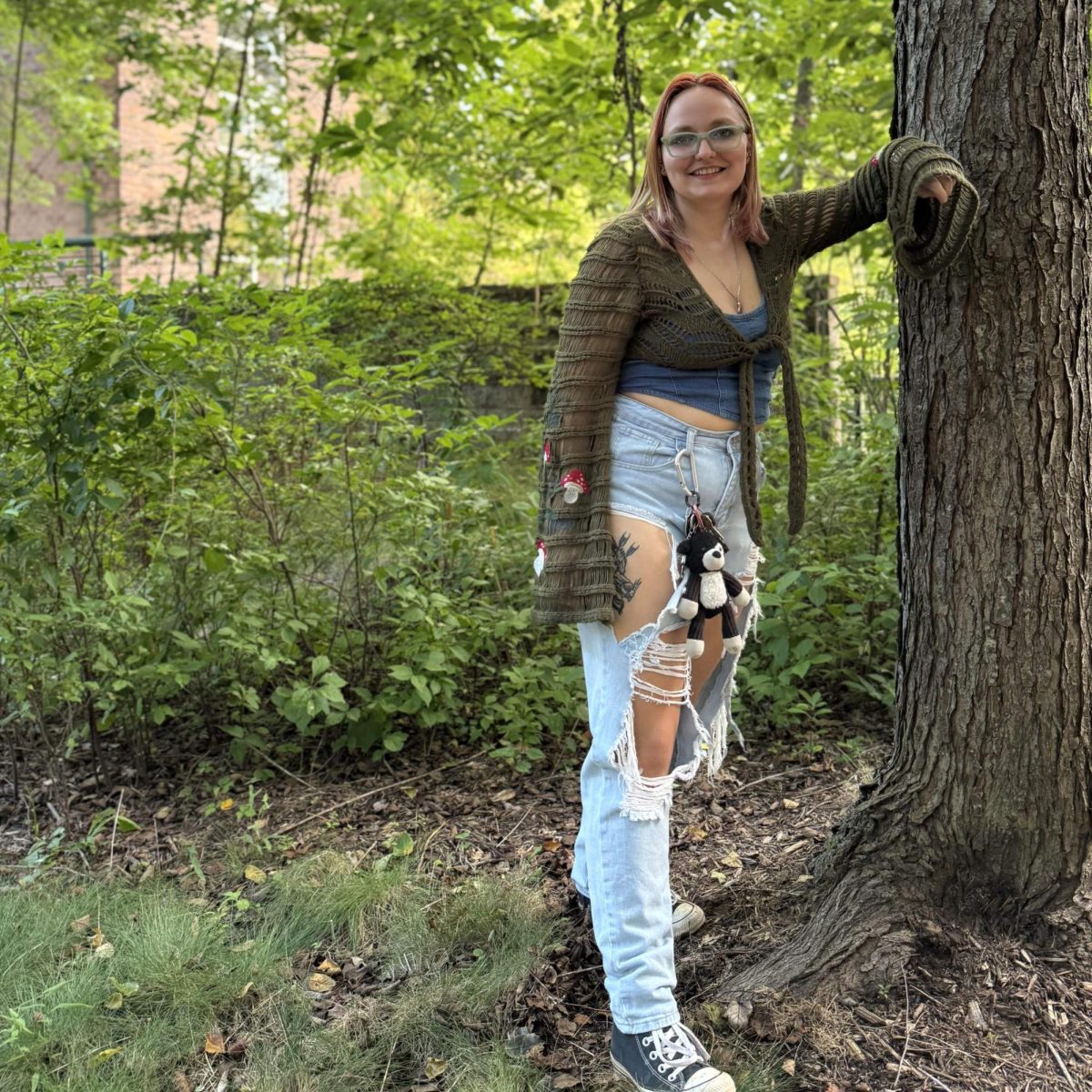Ending food insecurity is a team effort
At UNC Asheville many students stayed home with only virtual classes until the spring semester. Judging from the work Isabel Killian, co-director of the Food Equity Initiative does, you’d never know it.
“Don’t be afraid to take free food, don’t be afraid to ask for your needs,” Killian said.
For the last year, Killian and Student Co-Director Lean Angrist addressed food insecurity in Asheville through semiweekly food distributions and community events.
“The current stat is one in three college students face food insecurity,” Senior Director for Student Engagement at UNCA Kate Johnson said.
Catering to students and community members requires careful planning and setup to ensure the distributions reach the most people, Angrist said.
Pre-Helene, FEI did two distributions, one on Tuesdays on the quad from 12 to 2 catering towards students and Thursdays from 5 to 7 at Hyannis House catering to those outside the community who may have a nine to five, Killian said.
The decision to support the community and students comes from a need in Buncombe County, where food insecurity affects around 15% of the population, according to Feeding America, a nationwide network of food banks, food pantries, and meal programs.
According to Feeding America, the average meal in Buncombe County costs $4.71 and it would take around $35 million to close the gap for all those struggling to make ends meet.
“I don’t think that it is overstated the need that is on campus and in our community. I think there’s a huge stigma around talking about food insecurity and making ends meet in general. So I think when you are looking at the numbers it is easy to dismiss them as being overblown or blown out of proportion. I think it’s probably understated, I think we are getting closer to more accurately identifying the need in our community,” Johnson said.
While typically smaller rural communities are marked as food deserts, areas where healthy affordable food is inaccessible, Asheville has been marked as one.
Asheville is a popular tourist town with a population of just under 100,000 people. With a 0.68% increase in population in four years, Asheville continues to grow.
“The economy of Asheville has always been not focused on its residents and more focused on tourists and tourism. We have a very large unhoused population that is underserved by the government,” Angrist said.
This unhoused, underserved population according to the City of Asheville data consists of 739 people.
“Especially since the hurricane, there’s been a real effort to try and meet needs that needed to be met before the hurricane like food, showers, laundry, and more housing. So I think that there’s a lot of organizations that are focused on this issue even if it’s not resolved,” Angrist said. “I also think something I really appreciate about food equity initiative is our core principle of food being a human right. We all need food, so when students or staff or faculty say ‘I’m not gonna take it, someone else needs it more’ you can make that decision for yourself but we all need food.
* * *
Hyannis House post-Helene
FEI hosts community events and offers a safe space for individuals, which, prior to Helene, involved using the campus owned property, Hyannis House.
During Helene, Hyannis House suffered significant damage causing the building to be closed.
“When Helene hit, a couple of trees fell and one pierced the roof into our office/storage room and another took off a significant portion of the back deck which both created safety hazards. There also was a propane take that was knocked off its mooring, I guess. That’s just what I’m aware of. I know there were some concerns about the air quality and just general safety with the back deck and down trees,” Johnson said.
With the university focusing on restoring clean water and other necessities Hyannis House has fallen down to a lower priority Johnson said.
“We really want to advocate for it as a space not only for FEI but for just multicultural organizations and a safe space,the purpose of Hyannis, we want to circle back to that,” Killian said.
Despite FEI’s use of the space, with the damage to the property as well as other concerns the issues are complex, Johnson said.
“What people realize is it’s a house, but it’s a facility and it’s university owned. You really want to have, for safety purposes, a professional staff presence there. To have a professional staff presence is someone’s time and we don’t always have that personnel to spare or dedicate for that,” Johnson said.
“From my perspective, FEI really took hold and really utilized the space really well. I think they are likely the only group that was direct, deeply impacted by the closing. I think other organizations were definitely impacted and are probably sad, but I think we are the only ones where it directly impacted our operations,” Johnson said.
“Our main concern with the fact that we are unable to access Hyannis House indefinitely is that it was a safe, separate space for multicultural LGBT students to gather. That space doesn’t really exist anymore. I’d like to think that our entire campus is safe for Black and Brown students and LGBT students but I think what made Hyannis House special is that it was kind of removed and it felt like a home and it was comfortable. I think it really could have just been like a really great place to hang out,” Angrist said.
Owen James, UNCA student, frequently visits FEI and in the process gains insight into the work they do.
“I think that it’s really special to see different students kind of realize that that option is available. Then as students start to understand that, as someone who’s been there pretty consistently at their weekly distributions, kind of the sort of relationships that get built around sort of coming back, knowing that’s a resource that’s available for students for off-campus community members for anyone who needs those supplies,” James said.
Having a meal plan is helpful but FEI provides more than just food, James said.
“I’ve seen different people in the community come for different reasons. I’ve seen people who very specifically are in need of things more like milk or eggs. I’ve also seen people getting stuff like blankets, comforters, deodorant, toothbrushes, diapers. So I think it’s also just understanding that everyone’s needs are different in kind of a community space,” James said.
Accommodating a community’s needs is no easy undertaking, but with the efforts the FEI team makes, even through a hurricane, the future of FEI is bright, said Johnson.
“Take food. Talk about it to those who you think need this is something that they need but maybe don’t know about. Also ask us for what you need, where we’re lacking,” Angrist said.






















